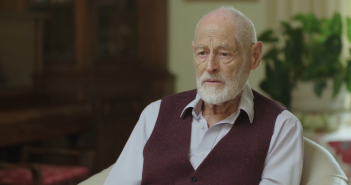The Irish media generally looks askance at Jeremy Corbyn’s ‘radical socialist manifesto.’[i] An historically warm relationship with Sinn Féin, Brexit neutrality, and lifelong commitment to the redistribution of wealth receive a cool reception in reports and commentary, while grossly inflated charges of Antisemitism within the Labour Party are threaded through articles.[ii]
Yet the Labour leader belongs to a tradition of English radicals with an abiding sympathy for Ireland. His anti-colonial, republican and Chartist outlook has also brought commitment to the downtrodden Palestinian people, and opposition to the machinations of the arms industry in Britain – which is the second largest exporter in the world, including to dictatorships such as that ruling Saudi Arabia.[iii] Corbyn’s enduring idealism is reminiscent of the poet and radical Percy Bysshe Shelley (1792-1822).
In fact Corbyn drew the slogan ‘we the many, they the few’ that resonated so powerfully during the 2017 General Election, from the Romantic poet, who drowned tragically off Lerici in Italy at the age of just twenty-nine.
These lines from Shelley’s poem ‘The Masque of Anarchy’, were written in the wake of the Peterloo massacre of 1819, when cavalry charged into a crowd of over sixty thousand unarmed civilians, killing eighteen, who had gathered to demand the reform of parliamentary representation. The atrocity actually led to the foundation of The Guardian newspaper, and was the subject of a Mike Leigh film in 2018.
Shelley calls on the downtrodden people:
Rise like Lions after slumber
In unvanquishable number,
Shake your chains to earth like dew
Which in sleep had fallen on you —
Ye are many — they are few.
The poet’s links to Ireland extend beyond his second wife Mary Shelley’s maternal grandmother’s Ballyshannon origins; or the Irish painter Emilia Curran’s 1819 iconic portrait. Having been expelled from Oxford in 1811, after authorities discovered him to be the author of a pamphlet entitled ‘The Necessity of Atheism’ – the first such argument printed in England – he went on to display an abiding interest in ‘John Bull’s Other island’.
At the end of the Napoleonic War Ireland’s plight remained a vital cause for English radicals, at a time when the Irish population – in the midst of a Malthusian demographic crisis after colonisation and the introduction of the potato at the start of the seventeenth century – was almost half that of England’s. Soon after expulsion from Oxford, Shelley travelled to Dublin in 1812, along with his first wife Harriet, with whom he had just eloped.
The young poet was greatly perturbed by the poverty and inequality greeting him in a city whose wealth and status had been greatly diminished by the Act of Union of 1801, which meant Irish M.P.s took their seats in Westminster not Dublin. He wrote: ‘I had no conception of the depth of human misery until now. The poor of Dublin are assuredly the meanest and most miserable of all.’[iv]
His experience of Ireland appears to figure in what he described as his ‘poetic education,’ in the preface to the long poem ‘Laon and Cythna’ (1818): ‘I have seen the theatre of the more visible ravages of tyranny and war … the naked inhabitants sitting famished upon their desolated thresholds.’[v]
The precocious nineteen-year-old addressed the Catholic Committee, containing the dying embers of the United Irishman movement, in what is now Smock Alley Theatre in Dublin. Asserting a pacifism that is also prominent throughout the current Labour leader’s career, he urged: ‘In no case employ violence, the way to liberty and happiness is never to transgress the rules of virtue and justice. Liberty and happiness are founded upon virtue and justice. If you destroy the one you destroy the other.’
The future leader of Catholic Emancipation, Daniel O’Connell, is believed to have been at the meeting, although he may not have been present for Shelley’s speech itself. O’Connell shared a distaste for armed conflict, a view which prevailed as the mainstream approach in Irish nationalism until World War I.
Shelley’s sympathies lay with the historically oppressed Catholic community in Ireland, just as Corbyn’s lay with Northern Irish Catholics during the Troubles. There is little doubt that Shelley would share Corbyn’s principled opposition to Trident, Britain’s thirty-billion-pound nuclear weapons programme.
Another link between Shelley and Ireland is that he completed what is considered his most revolutionary poem ‘Queen Mab’ while holidaying on Ross Island on Killarney Lake. This strident work, which he later partly disavowed, became a standard text for English socialists, including an approving Karl Marx. In this we discover a condemnation of commerce: ‘beneath whose poison-breathing shade / No solitary virtue dares to spring.’
Corbyn’s antipathy to big business has long antecedents, therefore, in British culture, albeit the trenchant views on the subject of Shelley’s near contemporary ‘the Father of Economics’ Adam Smith (d. 1790) are generally overlooked: ‘People of the same trade seldom meet together, even for merriment and diversion, but the conversation ends in a conspiracy against the public, or in some contrivance to raise prices.’ A suspicion of commercial self-interest in politics is well founded.
Shelley has been an inspiration to a host of Irish writers including W.B. Yeats who claimed Shelley shaped his life,[vi] as well as Sean O’Casey who described himself as a Shelleyan Communist. Another devotee George Bernard Shaw described Shelley approvingly as: ‘a republican, a leveller, a radical of the most extreme sort.’
Shelley was an inspiration for another of Shaw’s lifelong causes: vegetarianism,[vii] which the former laid out in an 1813 book: A Vindication of Natural Diet, although the term itself only came into being in the 1840s. Until that point anyone renouncing flesh was referred to as being a ‘Pythagorean’, after the Greek philosopher and mathematician of Antiquity, Pythagoras.
Similarly, Jeremy Corbyn has been a vegetarian for almost fifty years. Considering the influence of the Irish livestock lobby on mainstream Irish media, this may have aroused further suspicion. Corbyn has, however, tended to play down that feature of his politics, perhaps forewarned by George Orwell’s condemnation of sandal-wearing vegetarians ‘burbling about dialectical materialism’ in The Road to Wigan Pier.[viii]
Nonetheless, socialists such as Corbyn are stigmatised as forming part of a ‘north London, metropolitan, liberal elite’ by right-wing Populists such as the Home Secretary Priti Patel,[ix] who herself previously suggested using the possibility of food shortages in Ireland to force the E.U.’s hand over Brexit.[x] Corybn’s lifetime commitment to the redistribution of wealth, including resistance to austerity, may be the fruition of Shelleyian idealism: ‘a consciousness of good, which neither gold / Nor sordid fame, nor hope of heavenly bliss / Can purchase.’[xi]
Corbyn, like Shelley before him, might have appeared naïve at times, including in his approach to Ireland. But he could yet emerge as the first British Prime Minister to feel genuine remorse for the damage wrought by British colonialism on Ireland. Moreover, notwithstanding the ongoing instability of the European project in the wake of Brexit, the genuine warmth he feels towards Ireland may harmonise relations between the peoples of these islands – the vast majority of whom have suffered under the yoke of tyrannical government over the course of a shared history.
I for one dearly hope the British people “Rise like Lions after slumber / In unvanquishable number.” and vote Labour in the General Election on December 12th.
[i] Simon Carswell, ‘It’s a means to an end – I want Brexit’, Irish Times, December 6th, 2019. https://www.irishtimes.com/news/world/uk/uk-election-it-s-a-means-to-an-end-i-want-brexit-done-1.4105840
[ii] See, Finn McRedmond, ‘ The Labour leader seems temperamentally incapable of apologising for the anti-Semitism that has wracked his party,’ – ‘Political rot has spread from US to UK,’ Irish Times, December 6th, 2019, https://www.irishtimes.com/opinion/political-rot-has-spread-from-us-to-uk-1.4105894:
[iii] Dan Sabbagh, ‘UK reclaims place as world’s second largest arms exporter’, The Guardian, July 30th, 2019, https://www.theguardian.com/world/2019/jul/30/uk-reclaims-place-as-worlds-second-largest-arms-exporter
[iv] Percy Bysshe Shelley, ‘An Address to the Irish People’, 1812, https://www.bl.uk/collection-items/p-b-shelleys-address-to-the-irish-people,
[v] Author’s own recording: https://soundcloud.com/frank-armstrong-649911741/shelleys-preface-to-laon-and
[vi] W.B. Yeats ‘The Philosophy of Shelley’s Poetry’, 1900, http://www.yeatsvision.com/Shelley.html.
[vii] Percy Bysshe Shelley, ‘A Vindication of Natural Diet’, 1813, http://www.animal-rights-library.com/texts-c/shelley01.htm
[viii] George Orwell, The Road to Wigan Pier, Part 2, 13, http://www.telelib.com/authors/O/OrwellGeorge/prose/RoadToWiganPier/wiganpierpart_13.html
[ix] Daniel Sugarman, ‘Why I don’t think Priti Patel’s reference to “north London” was an anti-Semitic dog whistle’, October 3rd, 2019, New Statesman, https://www.newstatesman.com/politics/uk/2019/10/why-i-don-t-think-priti-patel-s-reference-north-london-was-anti-semitic-dog
[x] Gráinne Ní Aodha, ‘Tory MP suggests using possible ‘no-deal’ food shortages to force Ireland to drop the backstop’, December 7th, 2018, https://www.thejournal.ie/brexit-threat-food-shortages-ireland-4381228-Dec2018/
[xi] ‘P. B. Shelley, ‘Queen Mab,’ Book V




